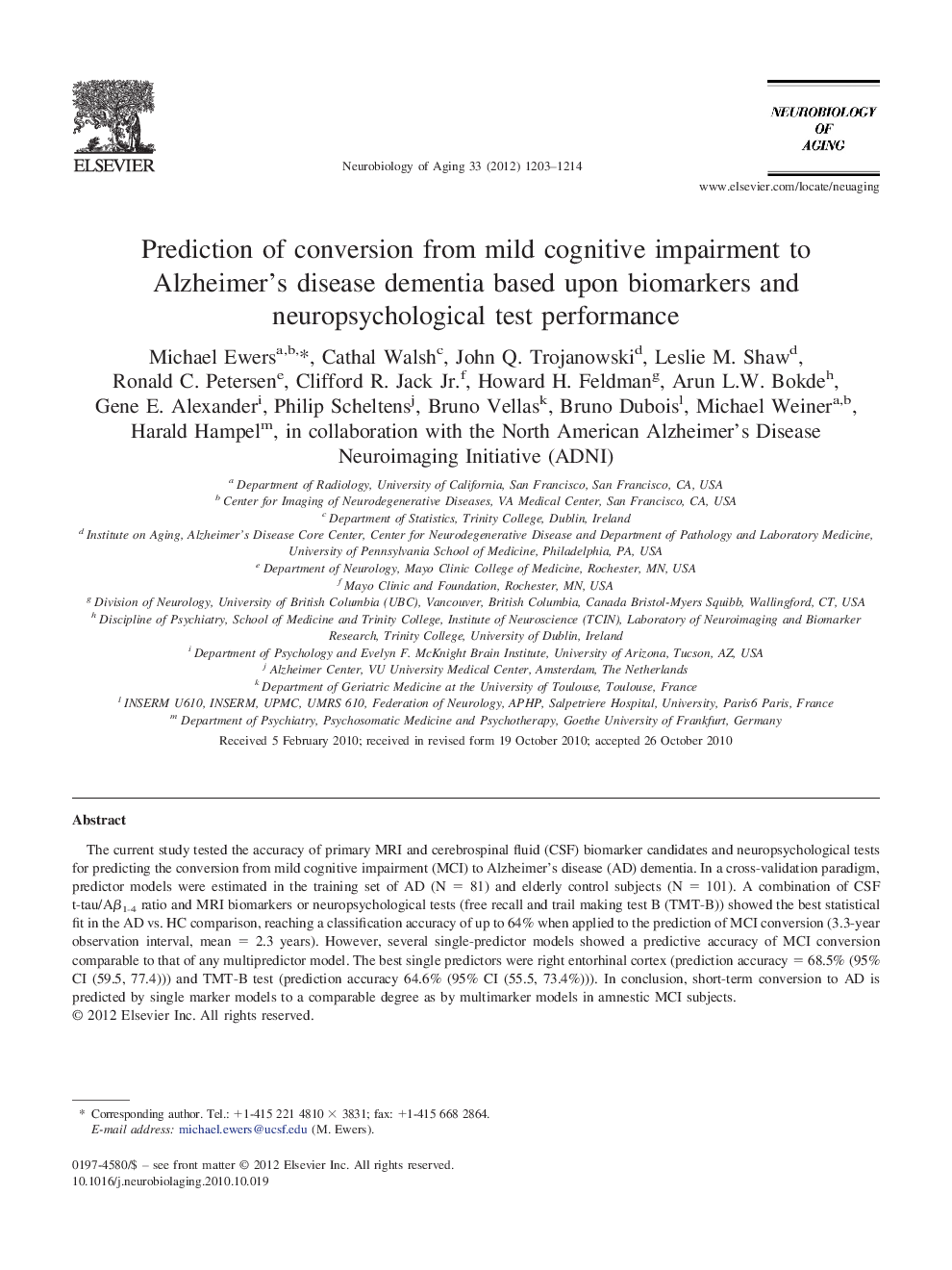| Article ID | Journal | Published Year | Pages | File Type |
|---|---|---|---|---|
| 6808692 | Neurobiology of Aging | 2012 | 14 Pages |
Abstract
The current study tested the accuracy of primary MRI and cerebrospinal fluid (CSF) biomarker candidates and neuropsychological tests for predicting the conversion from mild cognitive impairment (MCI) to Alzheimer's disease (AD) dementia. In a cross-validation paradigm, predictor models were estimated in the training set of AD (N = 81) and elderly control subjects (N = 101). A combination of CSF t-tau/Aβ1-4 ratio and MRI biomarkers or neuropsychological tests (free recall and trail making test B (TMT-B)) showed the best statistical fit in the AD vs. HC comparison, reaching a classification accuracy of up to 64% when applied to the prediction of MCI conversion (3.3-year observation interval, mean = 2.3 years). However, several single-predictor models showed a predictive accuracy of MCI conversion comparable to that of any multipredictor model. The best single predictors were right entorhinal cortex (prediction accuracy = 68.5% (95% CI (59.5, 77.4))) and TMT-B test (prediction accuracy 64.6% (95% CI (55.5, 73.4%))). In conclusion, short-term conversion to AD is predicted by single marker models to a comparable degree as by multimarker models in amnestic MCI subjects.
Keywords
Related Topics
Life Sciences
Biochemistry, Genetics and Molecular Biology
Ageing
Authors
Michael Ewers, Cathal Walsh, John Q. Trojanowski, Leslie M. Shaw, Ronald C. Petersen, Clifford R. Jr., Howard H. Feldman, Arun L.W. Bokde, Gene E. Alexander, Philip Scheltens, Bruno Vellas, Bruno Dubois, Michael Weiner, Harald Hampel,
